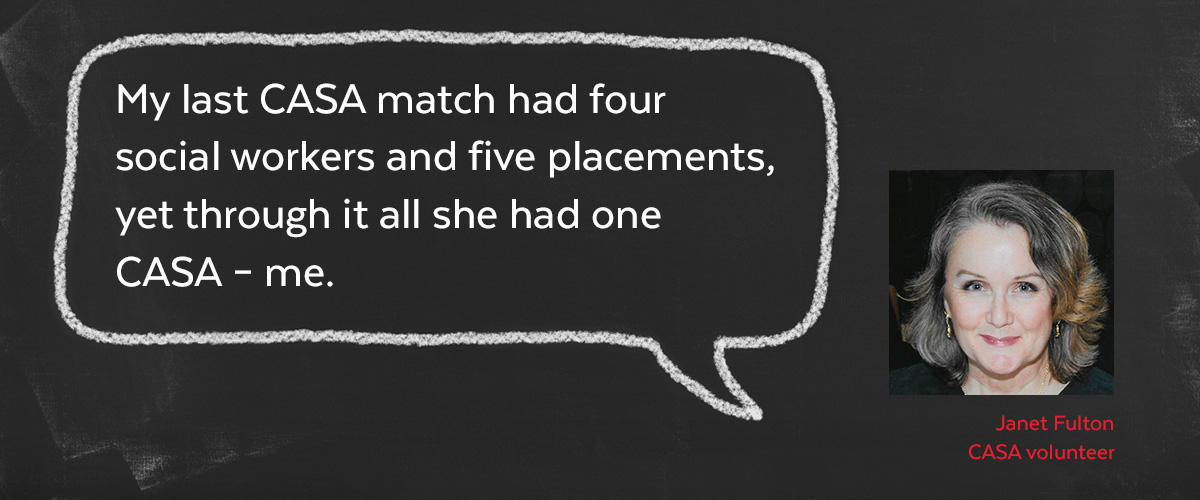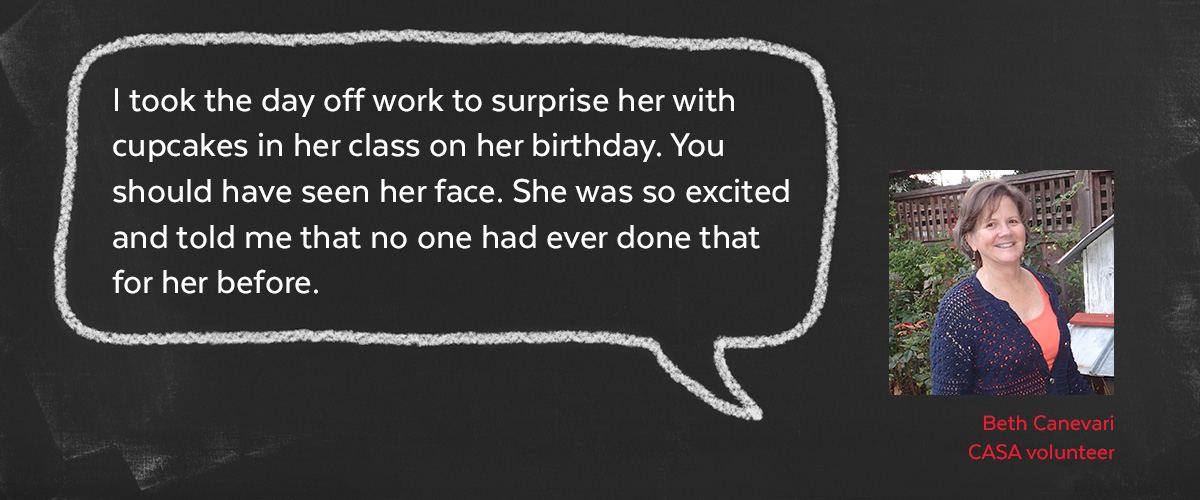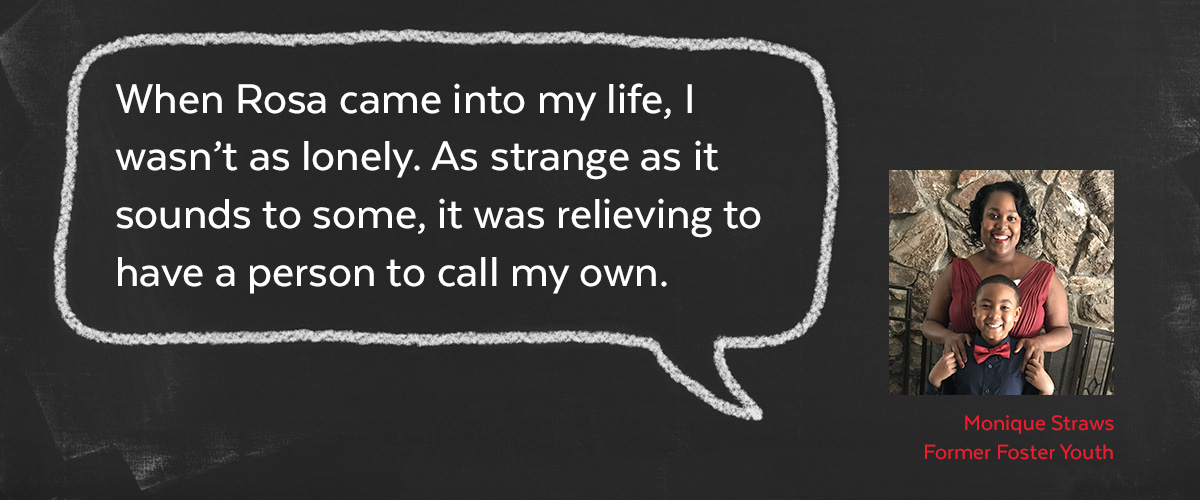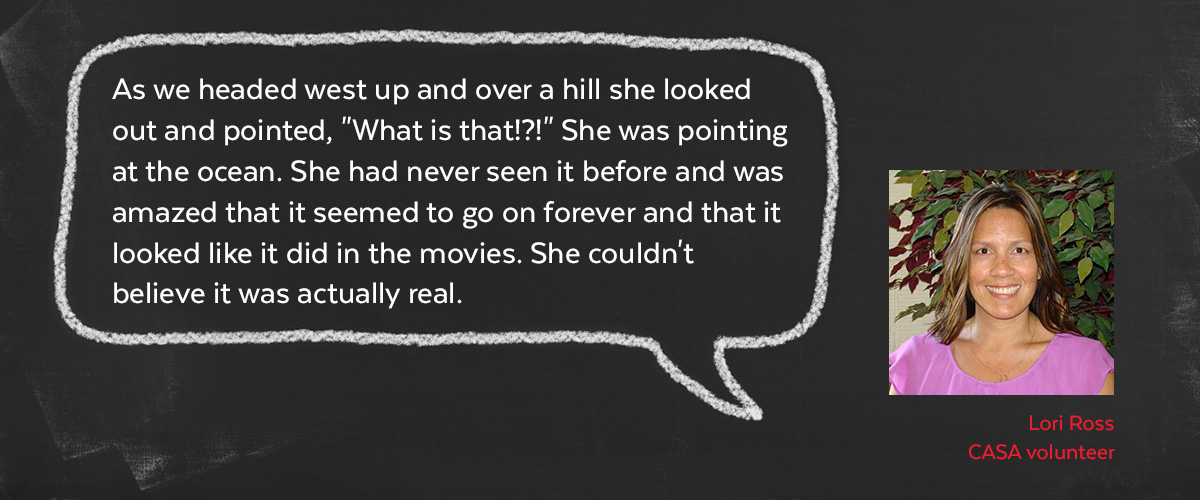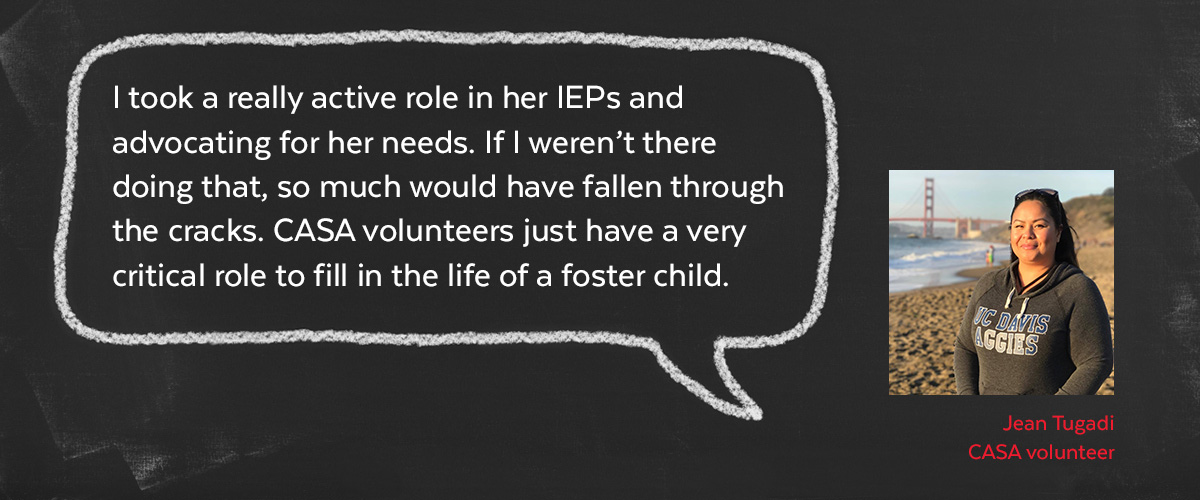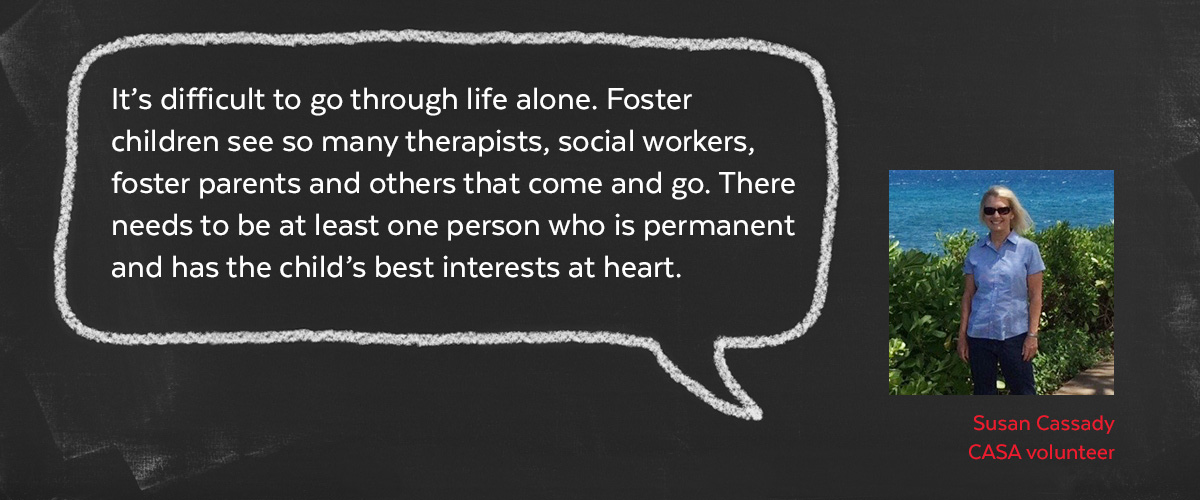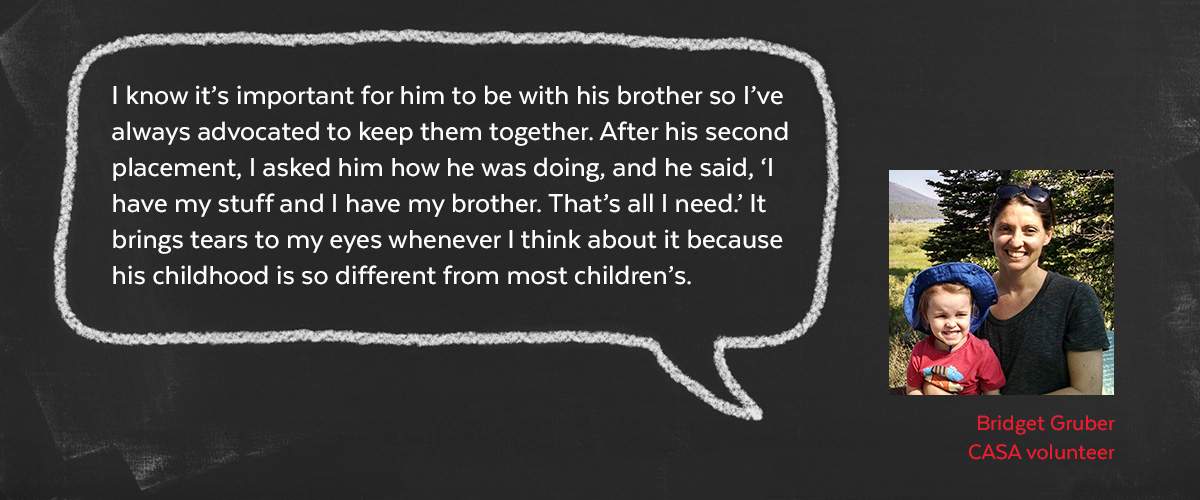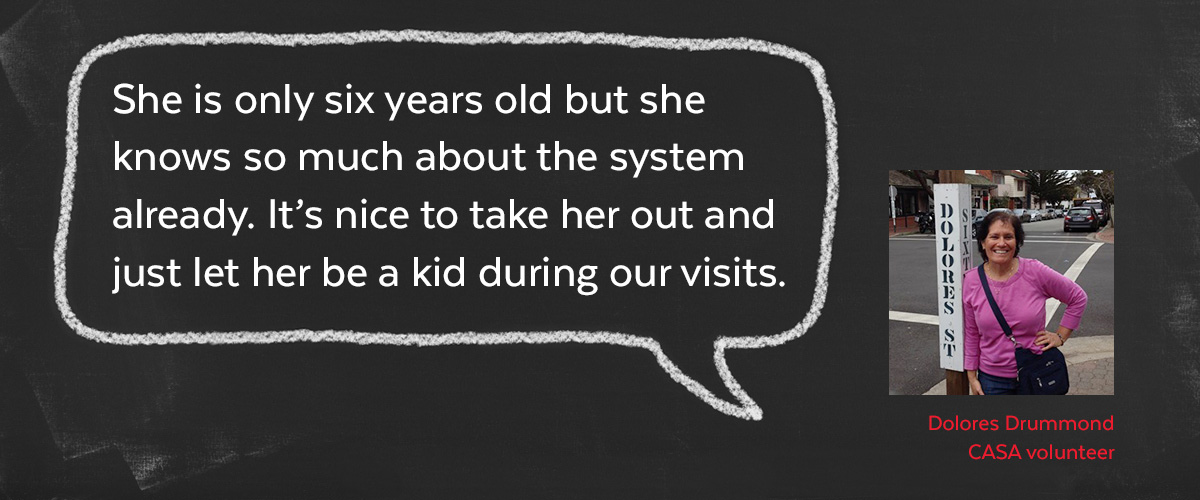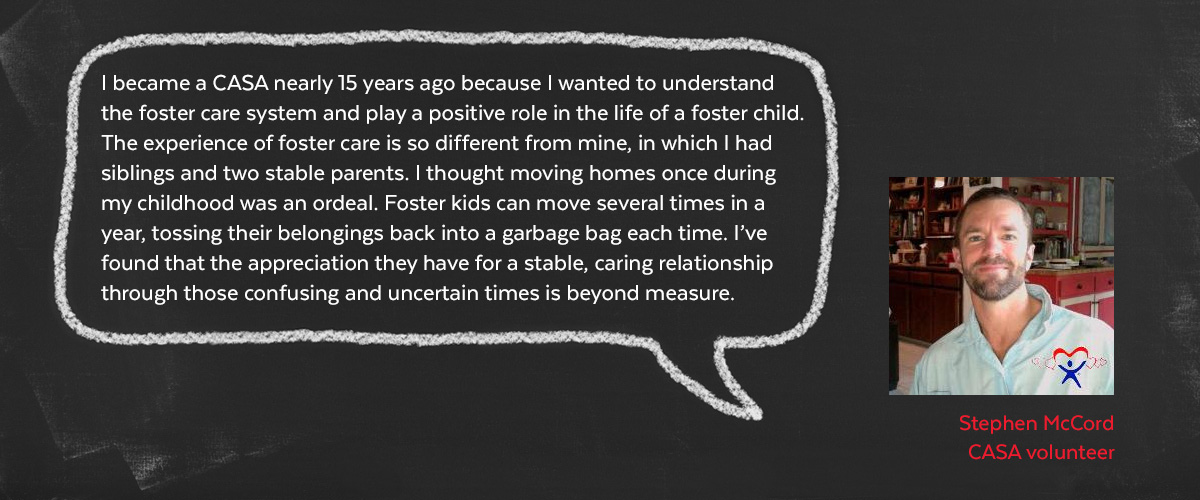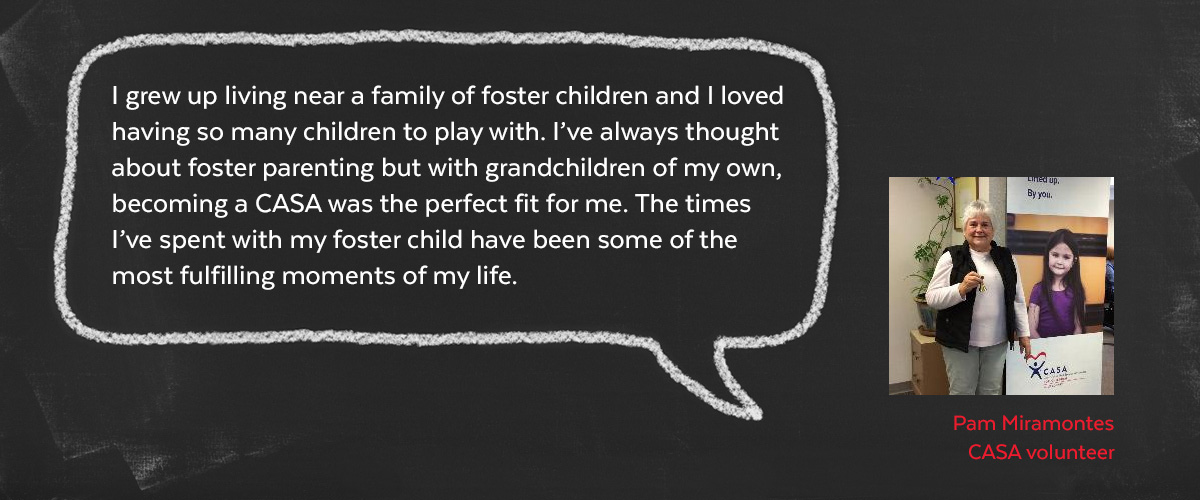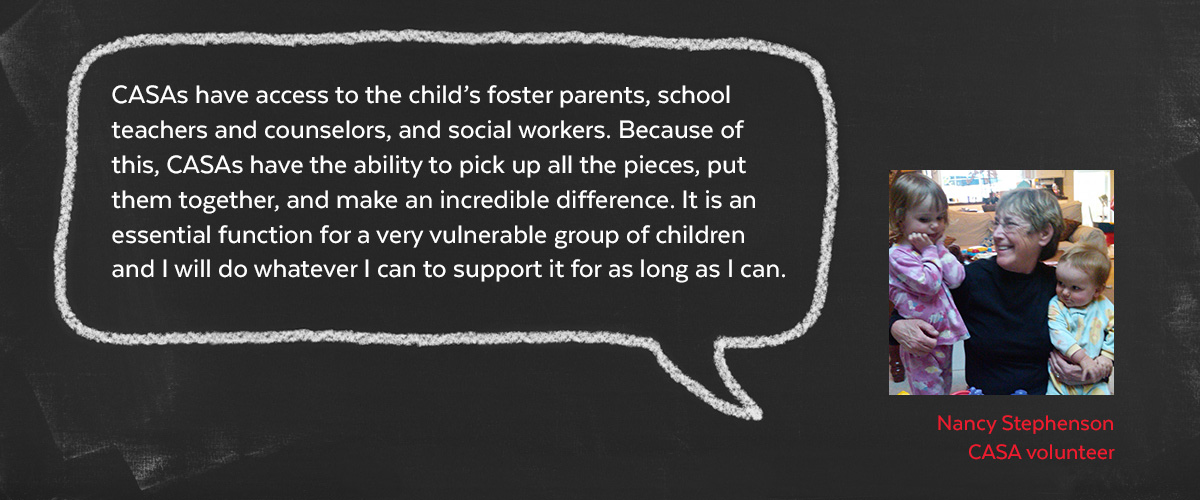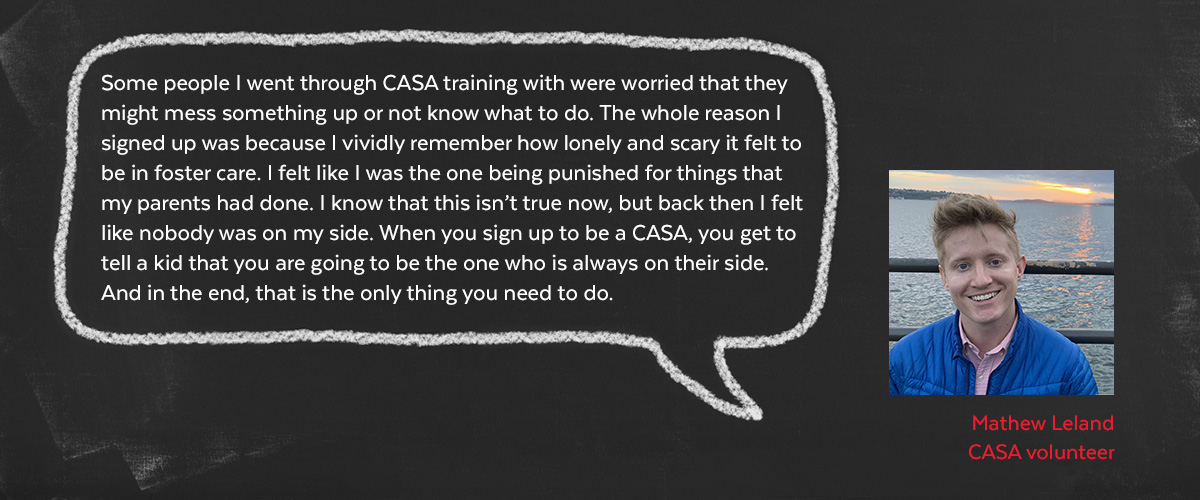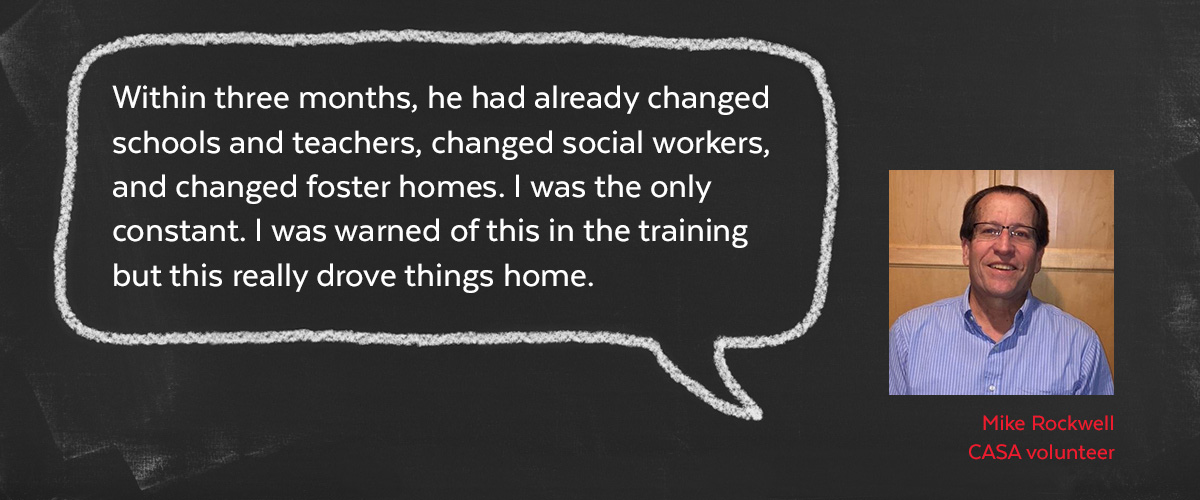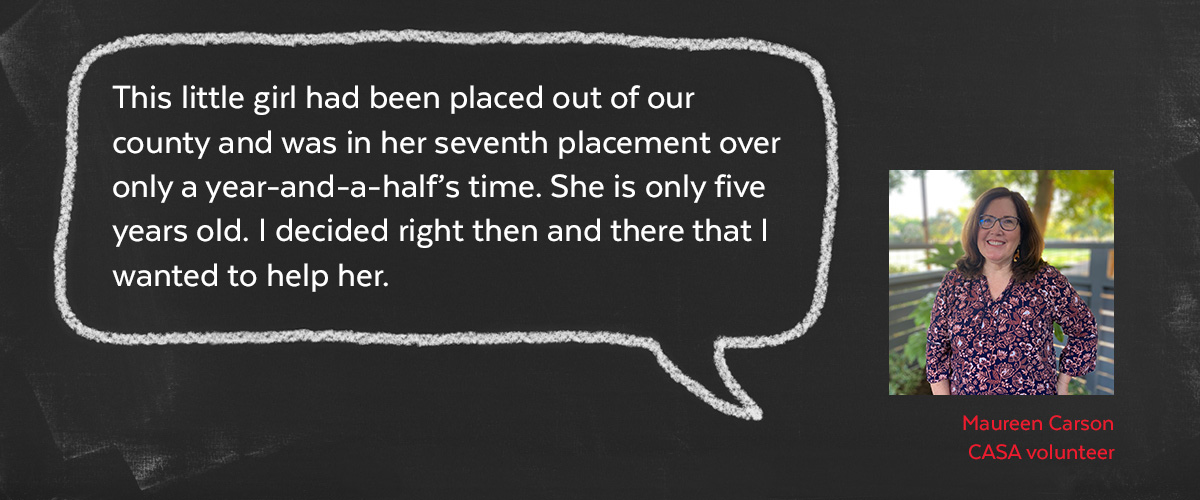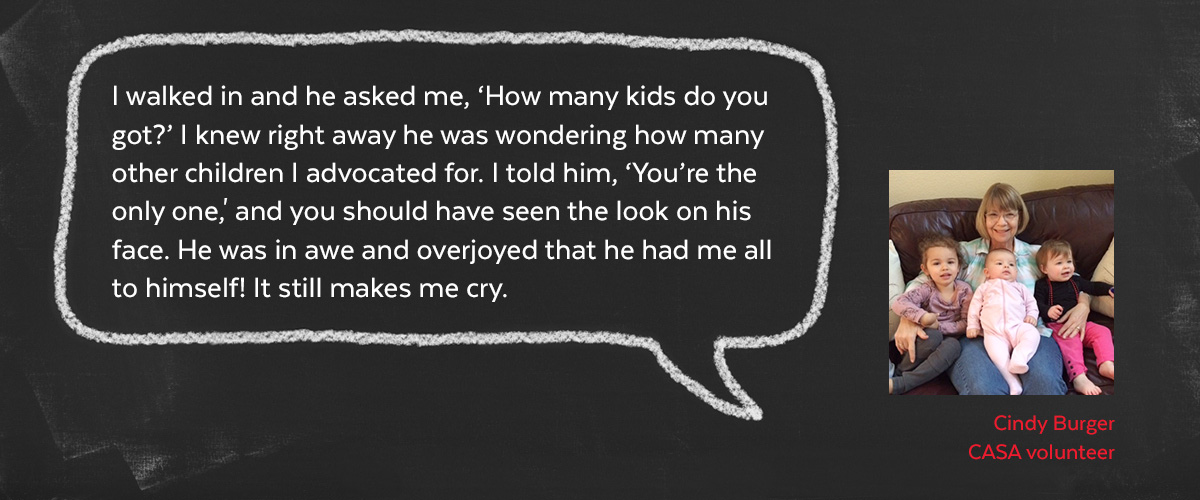Ann Durant-Buggy recently moved from Stockton to Davis with her husband. “My husband and two of my children all attended UC Davis so we thought it would be a great place to eventually retire.” When she moved, she was also looking for a volunteer cause.
“I heard about CASA many years ago because my aunt was a CASA volunteer and then a guardian ad litem. At the time, I had young children and I volunteered often in their activities so I did not pursue becoming a CASA volunteer. However, I never forgot about it. When I moved to Davis, it seemed like the perfect time to pursue it.”
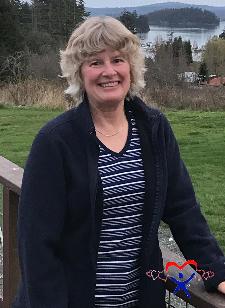
Ann completed her CASA training last January and received her assignment, two young girl siblings, last June. In the past year, she has many memories that stand out, but recalls a particular tradition that is a favorite. “Both girls go to an after school program and they love when I pick them up early to take them home. We make stops so it often takes a couple of hours. One day we went to Starbucks, Baskin Robbins, and the park. We never stopped smiling.”
A teacher by trade, and now an ESL and early childhood development consultant, Ann also enjoys being able to help the girls’ family with resources. “Because I know what programs and resources are out there, I’ve tried to be as helpful to the girls’ family as possible. We’ve actually become very close as we’ve worked through issues together. When this assignment is over, I can see us being lifelong friends.”
Speaking of resources, Ann has enjoyed the advocacy component of being a CASA. In fact, she has even taken a few legal classes. “When I wrote my first court report, it became really apparent how everything comes together. I take good notes after each visit with the girls. When I write my court reports, I have a really good grasp of what they need. It really shows how vital the CASA relationship is.”
Ann also speaks about a CASA volunteer’s ability to spot red flags and resolve them. “I was once really concerned about where my case was headed and I shared those concerns with the social worker. She listened and investigated, and the issue was resolved. I saw how my on-the-ground knowledge truly changed the outcome of the case.”
To people who might be thinking of becoming a CASA, Ann encourages them to go to the training. “Going to the training does not mean you need to take on a case. At the very least you will learn interesting things about the dependency system and the courts. If you take on a case, you’ll realize that it is a very different and fulfilling way to volunteer.”

